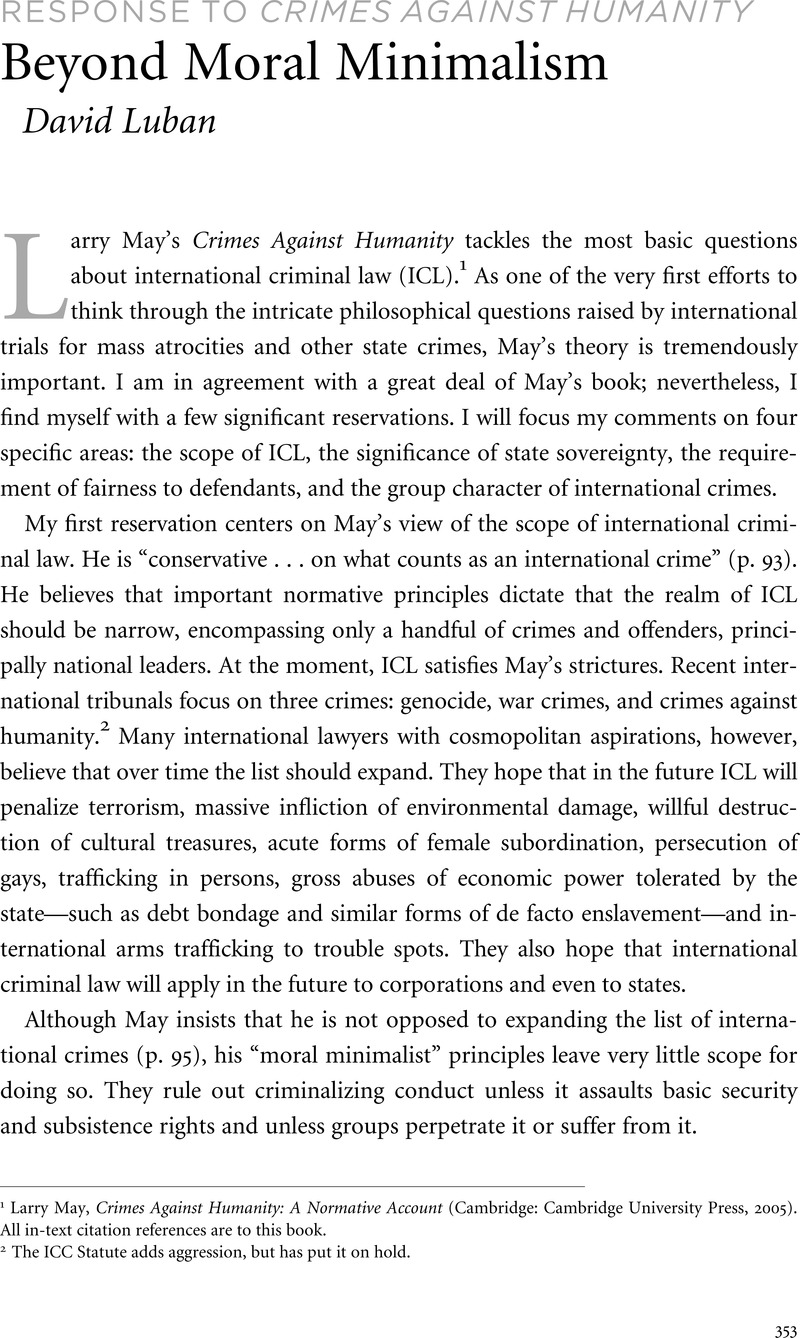
1 Larry May, Crimes Against Humanity: A Normative Account (Cambridge: Cambridge University Press, 2005). All in-text citation references are to this book.
2 The ICC Statute adds aggression, but has put it on hold.
3 Marlise Simons, “Sudan Poses First Big Trial for World Criminal Court,” New York Times, April 29, 2005, p. A12.
4 For more on this point, see Martti Koskenniemi, “Between Impunity and Show Trials,” Max Planck Yearbook of United Nations Law 6, no. 1 (2002), pp. 1–32.
5 These are, respectively, the objective territorial (“effects”) principle, the nationality (or “active personality”) principle, the passive personality principle, and the protective principle. See the Restatement of the Law, Third, Foreign Relations Law of the United States, sect. 402 (American Law Institute, 1987).
6 The substantive crimes against humanity in Article 5 of the ICTY Charter are the same as those in Allied Control Council Law No. 10. Furthermore, the militiamen's conduct violates at least Article 3 of the Geneva Conventions (the list of minimum rights guaranteed to captives in noninternational armed conflicts). The conduct also involved “grave breaches” of the Third Geneva Convention (art. 130) and the Fourth Geneva Convention (art. 147)—and both Geneva III (art. 129) and Geneva IV (art. 146) make grave breaches universal jurisdiction offenses. Yugoslavia was a party to the Geneva Conventions from 1950 on.
7 United States v. Int'l. Minerals & Chemical Corp., 402 U.S. 558, 565 (1971).
8 I elaborate and defend this mens rea analysis in David Luban, “The Publicity of Law and the Regulatory State,” Journal of Political Philosophy 10, no. 3 (2002), pp. 299–303.